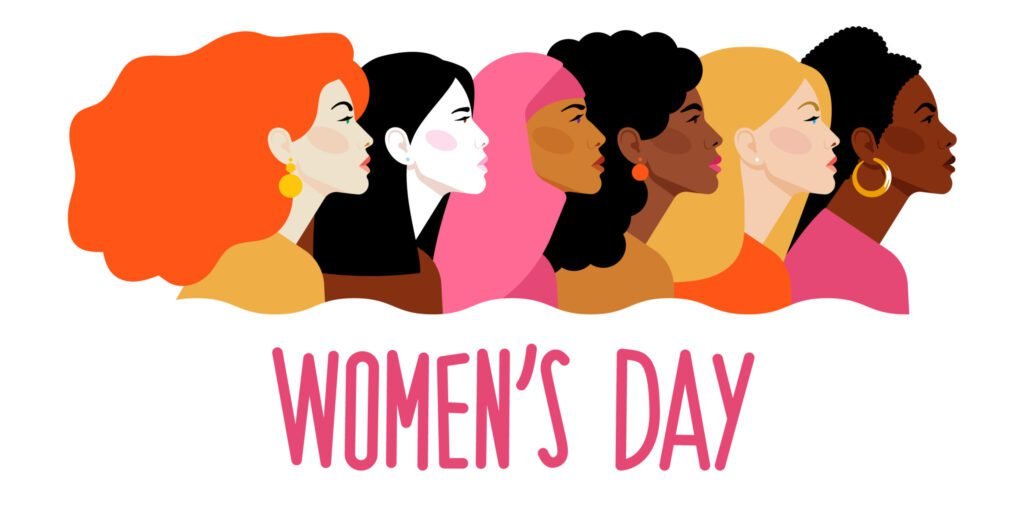National Women’s Day 2024: Celebrating Progress, Empowering Change.
3 min read 2024-02-13, 05:30 PM IST
Summary
|
National Women’s Day, a global celebration of women’s achievements, progress towards gender equality, and a call to action for accelerating change. As we enter 2024, it’s imperative to reflect on the journey thus far, the challenges that persist, and the opportunities for empowerment and advancement that lie ahead. In this comprehensive exploration of Women’s Day 2024, we delve into the historical context, contemporary issues, notable achievements, and initiatives driving positive change for women worldwide.
Historical Context of National Women’s Day
The roots of National Women’s Day can be traced back to the early 20th century, emerging from the labor and socialist movements in North America and Europe. The first National Women’s Day was observed in the United States on February 28, 1909, in honor of the 1908 garment workers’ strike in New York. Following this, the idea gained momentum internationally, leading to the establishment of International Women’s Day in 1911.
Throughout history, National Women’s Day has served as a platform for women to demand equality, advocate for their rights, and highlight issues such as suffrage, labor rights, and reproductive health. Over the decades, the observance has evolved into a global movement, encompassing diverse issues and mobilizing individuals, organizations, and governments to address gender disparities. (also read: National Girl Child Day 2024).
Contemporary Challenges and Opportunities
Despite significant progress in women’s rights and gender equality, numerous challenges persist in the 21st century. Gender-based violence, economic inequality, limited access to education and healthcare, discriminatory laws and practices, and underrepresentation in leadership roles are among the key issues facing women globally.
In many parts of the world, women continue to face barriers to their full participation in society and the economy. Cultural norms, stereotypes, and systemic inequalities perpetuate gender disparities, limiting women’s opportunities for advancement and stifling their potential.
However, amidst these challenges, there are also opportunities for positive change and empowerment. Increasing awareness, advocacy efforts, policy reforms, and grassroots initiatives are driving progress towards gender equality. Moreover, the digital revolution has opened up new avenues for women’s empowerment, enabling access to information, education, employment, and entrepreneurship. (also read: Modi Govt Raises Sukanya Samriddhi Yojana Rates for 2024 Elections).
Notable Achievements and Milestones
Over the years, there have been numerous achievements and milestones in the advancement of women’s rights and gender equality. From landmark legislation to groundbreaking movements, women have made significant strides in various spheres of life.
- Suffrage and Political Participation: The struggle for women’s suffrage has been a central theme in the fight for gender equality. Women’s right to vote has been achieved in many countries, empowering them to participate in the democratic process and shape policies that affect their lives.
- Education and Employment: Access to education and employment opportunities has expanded for women, enabling them to pursue higher education, enter previously male-dominated fields, and achieve economic independence.
- Reproductive Rights: Advances in reproductive health and rights have empowered women to make informed choices about their bodies, including access to contraception, maternal healthcare, and the right to safe and legal abortion.
- Leadership and Representation: Women’s representation in leadership roles, including politics, business, and academia, has increased, albeit slowly. Efforts to promote gender diversity and inclusion are reshaping institutions and challenging traditional power structures.
Initiatives Driving Change
Across the globe, countless initiatives and campaigns are working towards gender equality and women’s empowerment. From grassroots organizations to international coalitions, these efforts are making a tangible difference in the lives of women and girls.
- #MeToo Movement: The #MeToo movement, which gained prominence in 2017, has sparked a global reckoning on sexual harassment and assault. By amplifying survivors’ voices and holding perpetrators accountable, #MeToo has catalyzed cultural and systemic change.
- Girls’ Education: Organizations like Malala Fund and Girl Rising are advocating for girls’ education and empowering young women to reach their full potential. By addressing barriers to education, such as poverty, child marriage, and gender discrimination, these initiatives are unlocking opportunities for girls worldwide.
- Economic Empowerment: Microfinance programs, entrepreneurship initiatives, and vocational training opportunities are empowering women economically, enabling them to generate income, support their families, and contribute to their communities’ development.
- Legal Reform: Advocacy efforts and legal reforms are working to eliminate discriminatory laws and practices that perpetuate gender inequality. Campaigns to end child marriage, promote equal pay, and ensure access to justice for survivors of gender-based violence are gaining momentum globally.
Looking Ahead: Towards a Gender-Equal Future
As we celebrate National Women’s Day 2024, it’s essential to recognize the progress made and the work that remains to be done. Achieving gender equality requires collective action and sustained commitment from individuals, communities, governments, and institutions.
In the years ahead, let us continue to advocate for women’s rights, challenge gender norms, and create a more inclusive and equitable world for all. By harnessing the power of solidarity, activism, and innovation, we can build a future where every woman and girl has the opportunity to thrive and fulfill her potential.
National Women’s Day 2024 serves as a poignant reminder of the ongoing struggle for gender equality and the collective efforts to create a more just and inclusive society. From its humble beginnings to its global impact, Women’s Day embodies the resilience, courage, and determination of women throughout history.
As we reflect on the achievements and challenges of the past, let us redouble our efforts to advance gender equality and empower women and girls everywhere. Together, we can build a future where gender does not limit anyone’s potential, and every individual can live with dignity, freedom, and opportunity.
Happy National Women’s Day!

